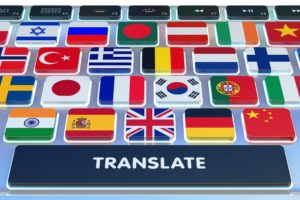 I am going to start this post with its conclusion: we need translations of Mormon literature into English.
I am going to start this post with its conclusion: we need translations of Mormon literature into English.
Now, let me explain why. Let us take a step back and consider how literature behaves. I don’t mean how it behaves internally but rather how it behaves within a given culture. I find the model proposed by Israeli scholar Itamar Even-Zohar helpful to visualize this. The idea is that literary works are objects within a culture that do not exist in isolation and are not static. Rather, literatures (national or otherwise) are made up of networks of relationships in constant flux. This is what allows some authors over time to have some of their works become cannon (they occupy the center) while others fall out of the cannon (and move toward the periphery). These networks conform systems, and when several of these exist, the broader network can be thought of as a polysystem.
Mormon Literature (which I am defining narrowly as literature concerned with Mormonism) is one such polysystem. In it one can find works that interact in different ways with the culture within which they exist. In it one can find different genres and types of literature—from hymns to novels and just about everything in between. In it one can find some works that occupy a more central position and others that exist in the periphery.
Now, when one thinks about “a literature,” translated works are not generally considered to be part of that literature. Their nature as translation makes them easily dismissed as belonging to the Other, and even if worthwhile, ultimately alien. But Even-Zohar reminds us that translated works are also part of the polysystem. They are objects in the receiving culture. They interact with other works and agents within the culture. They are dynamic. But they usually, not always, tend to be peripheral (the King James Version of the Bible is an example of a translation that managed to move toward the center of the polysystem).
What Even-Zohar posits regarding translated works is that they can play important roles within the polysystem in several ways. Translated works can help fill in vacuums and provide new models. They can even nurture and help establish the norms of certain genres. In other words, translated literature makes the polysystem robust and adds to its dynamism.
As I look at the Mormon literature polysystem, one thing I notice is that it is lacking in translated literature. There are good, historical reasons for that. But we are now at a point where translated Mormon literature can provide new perspectives, different stories, innovative literary techniques, and surprising genres. This seems to be what James Goldberg was getting at when he organized an international literary contest in 2019, which included a fair amount of translation. He found that the freshness of the different perspectives help “make ourselves and our culture richer”. So, in short: we need translations of Mormon literature into English.
Do you agree? If so, what works in other languages do you think should be translated?


As an English-only speaking American Latter-day Saint, my challenge is not knowing what international LDS literature exists. Is there any kind of database of non-English LDS literature out there from which we can draw on to answer your question? Because I agree–I would love to read more international literature.
Bryan, this is part of the challenge, I think.
I know of one novel that has been translated, and that’s “Paradise Reclaimed” by Halldór Laxness (translated from the Icelandic; original title: Paradísarheimt).
Off the top of my head, here’s what I can think of… In terms of poetry, there’s “La piedra ente la ñeve” by Josep Carles Laínez (in Asturian) and “El aguijón” by Osvaldo R. Borelo (in Spanish). In terms of short stories, I have heard of Kent Larsen’s “Aquilo que nos move” anthology (in Portuguese). In terms of novels, “Eleusis” from R. de la Lanza (in Spanish) comes to mind.
But there are others, for sure. That’s why I ended the post with that broad question, to help flesh this out.
Gabriel, I really appreciate your post. This is an issue that I have felt strongly about for many years.
You are absolutely right about the DIRECTION of the translation that is needed. There is a misunderstanding about where the development is needed — too often the assumption is that those who speak English need to provide their works to those who speak other languages. While that is true to a degree, it is also a kind of cultural imperialism. AND, it removes a lot of the incentive for development of non-English Mormon literature, since when a work is translated from English to another language the financial benefits largely go to the English-speaking authors and publishers, who already have a market, instead of to the local language authors and publishers, who are fighting to develop something.
If we translate from local languages to English, then the established market helps subsidize the development of the local market — a portion of the sales ends up being paid to authors and publishers in Mexico or Brazil or wherever.
This was a large part of the plan behind my anthology “Aquilo que nos move” (That which moves us). It was a collection of the best of the Parley P. Pratt Short Story contest I ran in 2010. And yes, the intent was to translate the best stories — although that never happened. And those who know me well know that significant other responsibilities got in the way of continuing that effort. I may now be in a place where I can return to that effort. I’m certain that effort could be repeated easily.
I’d be pleased to hear from anyone interested in helping: kent [dot] s [dot] larsen [at] gmail
[FWIW, “Aquilo que nos move” is still available here: https://www.amazon.com/gp/product/085051200X%5D
Kent, thanks for this additional insight. I had not considered the economic implications of it, so there’s a good argument there too.
I hope you can find people to support your very worthwhile effort to get “Aquilo que nos move” translated into English. (And thanks for the heads up, I just went on Amazon and bought it.)